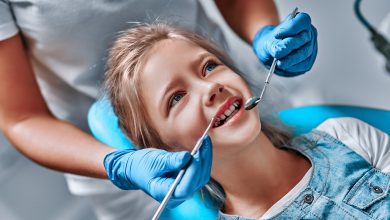
How to Protect Your Elderly from Infections – Live-In Care Chelmsford
There are different complexities associated with old age. When a person starts getting older, he is more prone to infections than other healthy adults.
Due care and attention are needed to minimize the risk. Some effective preventive measures can reduce the risk of disease in elderly individuals up to a greater extent.
You should be well aware of the possible infections that might affect your elderly loved ones and then the suitable approach to minimize their symptoms.
There are several live-in care Chelmsford services that can provide you with a trained in-home caregiver for your elderly loved ones. Apart from that, you can also adopt some practices that will reduce the infection risks.
Common Infections in Senior Citizens
There are different types of infections that can affect senior citizens. Among them. The most common infections that are reported. Frequently in the elderly ones are:
Gastrointestinal Infections
There are a lot of healthy bacteria that live in the gut, but sometimes unhealthy bacteria can be present too.
This bacterium often comes from contaminated water or undercooked food and can cause diarrhea, vomiting, abdominal discomfort, and fever. However, it can also develop due to taking antibiotics that destroy healthy bacteria.
It is essential to stay hydrated to support recovery and minimize complications. Washing hands before eating and after using the restroom and ensuring that food is thoroughly. Cooked can help prevent this type of infection.
Skin Infections
Our skin is the first defense barrier for the body. Elderly individuals are at a higher risk of developing MRSA, a contagious and dangerous type of staph infection resistant to some antibiotics.
The infection is associated with red. Swollen bumps on the skin. These are often very painful and filled with pus. The disease quickly spreads through contact with the infected skin or indirect. Contact with something that has been contaminated.
COVID-19
Every one of us is now familiar with COVID-19. It is a very contagious infection that can spread through individuals without symptoms.
Some of the most common symptoms include fever, chills, cough, fatigue, etc. Most of the symptoms are similar to the flu. As we mentioned earlier, seniors are at high risk for complications and even death due to COVID-19, with 8 of 10 deaths occurring in the senior population.
Bacterial Pneumonia
According to the facts. Almost 1 million seniors are hospitalized with. Pneumonia each year in the US.
Pneumonia is caused by germs that enter the lungs. And result in inflammation and fluid buildup in the lungs. The germs can spread if the infected individual coughs or sneezes, does not wash hands, or shares utensils or cups with others.
Influenza
Influenza or the flu is another widespread. Respiratory infection spread quickly. Through coughing or sneezing especially in community settings such as hospitals and senior living facilities.
Seniors can benefit from a high-dose influenza vaccine to minimize risk and reduce the severity of symptoms. Like pneumonia, older adults may not present with a high fever or cough. Pay attention to changes in behavior, lethargy or weakness, and confusion.
Precautionary Measures
To prevent the spread of the infections mentioned above in elderly individuals, below is the list of some effective precautionary measures that you can incorporate into your daily life.
Get Vaccinated
To prevent the spread of COVID-19 and other infections, vaccination is compulsory. For elderly individuals. The practice will help them combat different infections to a greater extent.
Maintain a Hygienic Approach
It is necessary to keep a check on the good hygienic conditions. Make a habit of frequent hand washing. Always clean all the utensils and the things that are in their continuous use. This approach will minimize the infection spread to the maximum level.
Use Disinfectants
Do not forget to clean the surfaces properly. Use the disinfectants for cleaning out the surfaces. It is very beneficial to minimize the spread of hazardous germs that can spread infections.
Look After the Wounds
In case of any injury, carefully cater to the wounds. Look after the injured area carefully by applying adequate medication and keeping it away from any distress.
Maintain Social Distance
In case of the onset of any infection, try to avoid contacting people. Maintain suitable distance to control the spread of the disease.
Take Proper Medication
If any medication is going on then make sure the elderly. Individual takes it in properly and on time. Do not stop taking the medicine in between. And always complete the whole course. This will ensure complete recovery and will also prevent any future complications.
Avoid Contact with the Sick People
Make sure to keep your elderly loved ones away from sick individuals. If someone is suffering from any infection or contagious disease, strictly avoid contact with them and keep your elderly loved ones at a distance from them. Try to maintain the social distance as Soon as possible.
Final Words
You can save your elderly loved ones from harmful infections by taking simple precautions. A little care and attention can leave a significant impact.
We hope this post has answered some of the questions you had in mind about infections and how they can affect your elderly. Have questions? Drop them down below and we will revert ASAP.



